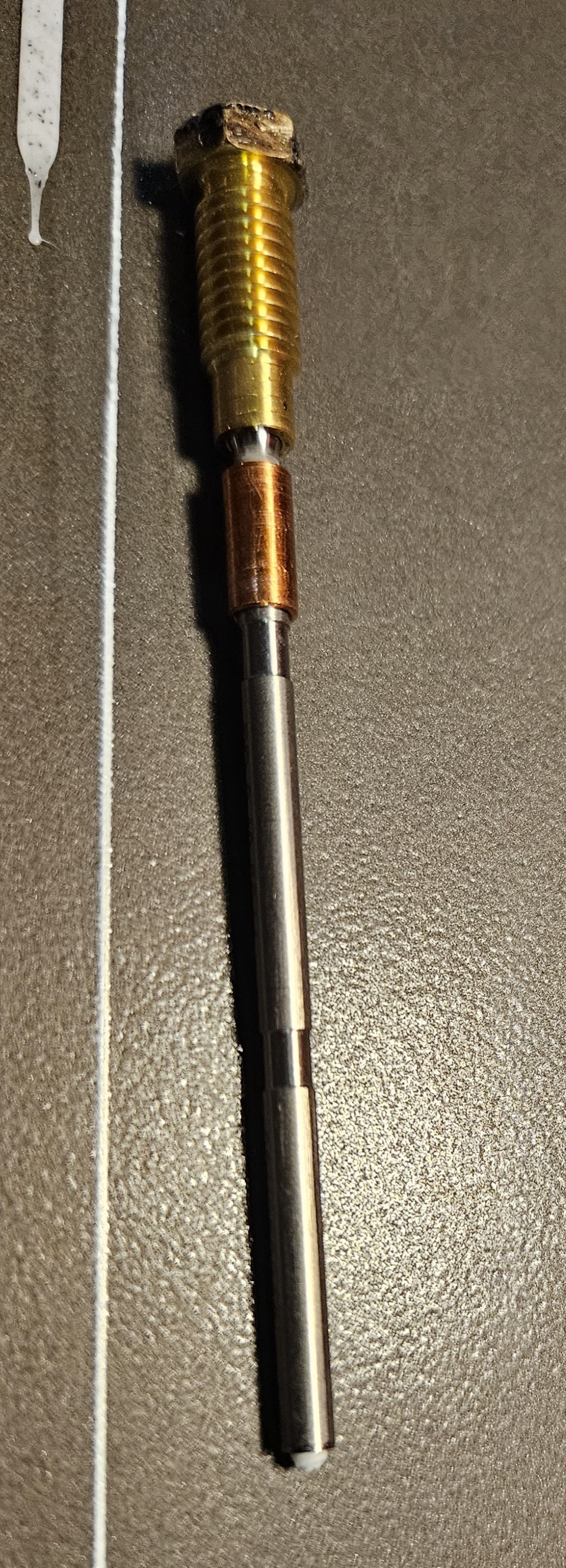I do not own a Prusa, so take this advice with a grain of salt, but should be universal advice.
Slowly heat the tube up, starting from the nozzle end. You can use a soldering iron but I've always used a small handheld blow torch on low, much quicker and no chance of plastic-ing my iron.
Once the filament starts increasing in temp, it will start to expand, this usually pushes a chunk of solid filament out the end. Use some pliers to slowly and gently pull the filament out.
The ultimate goal is to heat the filament up just enough to push that bit out and soften the plastic inside. When you pull out the solid end, you want to to it slowly enough that the softened filament "strings" out with the solid piece. If you've ever pulled a glob off your nozzle and watched it slowly peel off as it strings away you'll know exactly what I mean.
You won't get 100% of the clog out this way, but if you do it right you should at least get it cleared enough to be able to stick a cleaning tool down there and get the rest out. That being said, I've always torched the hell out of my metal hotend parts (nozzles/ heat blocks and throats starting to glow red) to clean them and never had issues come from it, but your Prusa is a bit fancier and much more expensive than my barbarian of a printer, might be more sensitive to the minor changes that may occur from such heat cycles.
Shoot me a message or reply if you still need help. Clogs are my nemesis.

